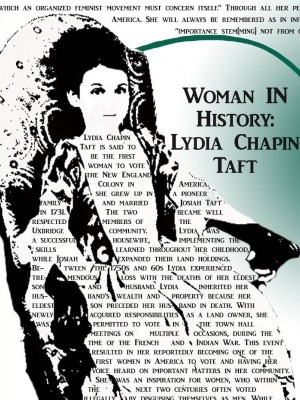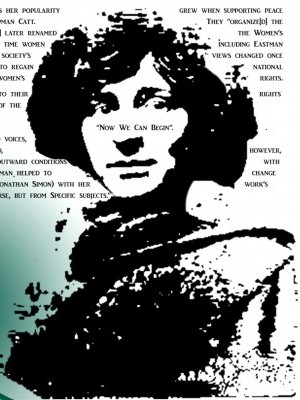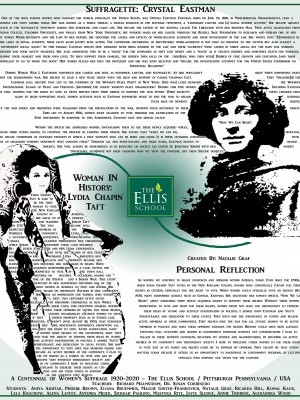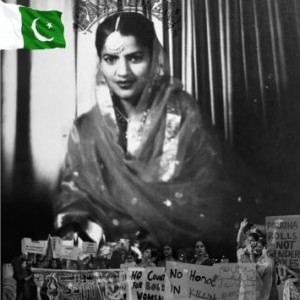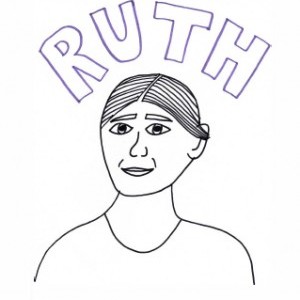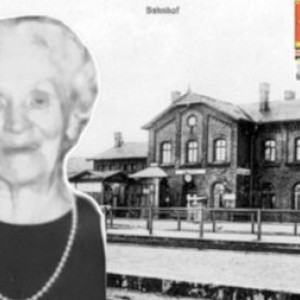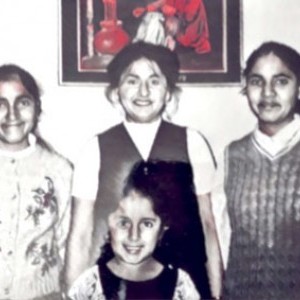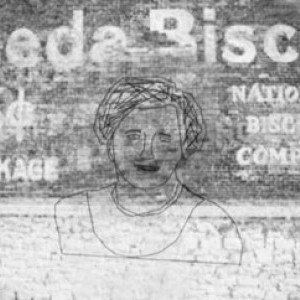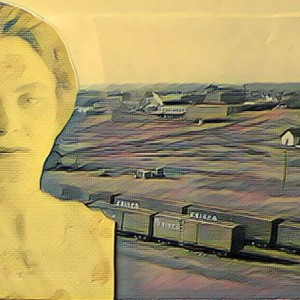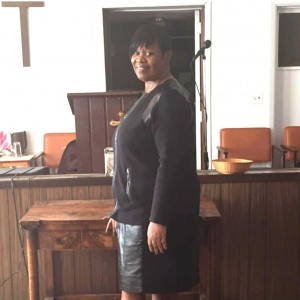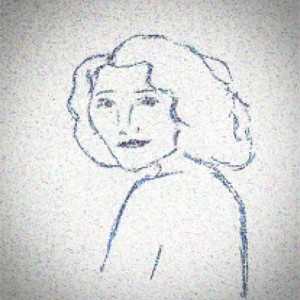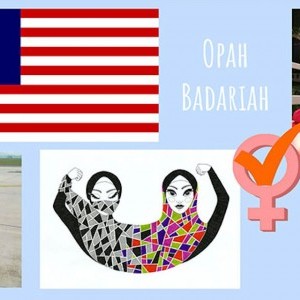Natalie Graf
The Ellis School | Pittsburgh, PA | 11th Grade
A Woman in History
Lydia Chapin Taft
Lydia Chapin Taft is said to be the first woman to vote in the New England colonies in America. She grew up in a pioneer family and married Josiah Taft in 1731. The two became well respected members of the Uxbridge community. Lydia was a successful housewife, implementing the skills learned throughout her childhood, while Josiah expanded their land holdings. Between the 1750s and 60s, Lydia experienced tremendous loss with the deaths of her eldest son and husband.
Lydia inherited her husband’s wealth and property because her eldest son preceded her husband in death. With her newly acquired responsibilities as a land owner, she was permitted to vote in the town hall meetings on multiple occasions, during the time of the French and Indian War. This event resulted in her reportedly becoming one of the first women in America to vote and having her voice heard on important matters in her community. She was an inspiration for women, who within the next two centuries sometimes voted illegally, by disguising themselves as men. While risking their lives, this deception enabled women to voice their opinions by voting for their beliefs.
Some states allowed women to vote if they owned property such as in Lydia’s case. However, it wasn’t until August 18, 1920, that Congress ratified the nineteenth amendment, permitting all women the right to vote. After ratification, many women were drawn to the government, since they now had the ability to express their ideas by voting and actively participating in politics. I admire Taft’s perseverance and dedication to local events. She saw the importance to vote once her husband passed and became an active member of the community. I plan to use my rights as a citizen to vote and aim to become very involved throughout society and in my community. I hope to influence other civilians to exercise their rights as citizens and air their voices in support of the concepts they believe in.
Historical Figure I Admire
Crystal Eastman
One of the most famous women who changed the world, especially the United States, was Crystal Eastman. Eastman, born on June 25, 1881, in Marlborough, Massachusetts, led a successful life many admire today. She was known as a triple threat: a woman involved in the suffrage movement, a “legendary lawyer and [a] social reform activist.”1
She became greatly involved in the suffragette movement during her schooling and early life. She became the editor of the journal called The Liberator with her brother Max. Then after graduation from Vassar College, Columbia University, and finally from New York University, she worked hard on her career through the Russell Sage Foundation to research and publish one of her first works Work-Accidents and the Law.2 In her report, she discussed the causes and effects of work-related accidents and their involvement in the law. She wrote that: “[c]onsidered in the light of social economy, these facts again justify such action. The continuing recurrence of preventable work accidents is not only an injustice to the victims but also clearly a tremendous social waste.”3 In this passage, Eastman writes how workers were being ignored by the law and these ‘accidents’ were caused in three areas, but the main was working conditions and poor safety measures. She also announced this to be a ‘waste’ for the companies as they lost money and a ‘waste’ as it creates injuries and sometimes death for workers, ruining their families’ and their own lives. To then support their families, the burden then falls on the “child[ren, who then were] robbed of free growth and education, [and then] compelled to go to work too soon.”4 Her works placed her into the spotlight and she was soon selected and “became the investigating attorney for the United States Commission on Industrial Relations.”5
During World War I, Eastman continued her career and role as reformer, lawyer, and suffragette. As her popularity grew when supporting peace against the surrounding war, she helped to lead a new peace group with the help and support of Carrie Chapman Catt. They “organize[d] the Carnegie hall meeting that led to the founding of the Woman’s Peace Party of New York-[this was] later renamed the Women’s International League of Peace and Freedom – [becoming] the oldest women’s peace organization.”6
During this time women including Eastman were still fighting for the right to vote as views shifted from their rights to support the war effort. Once society’s view changed once again to begin supporting peace, women activists such as Eastman could target to end the war to regain national focus back on women’s rights. Once the war ended and priorities were realigned from the distractions of the war, women focused back on their rights. This led in August 1920 to women being allowed to vote through the ratification of the 19th Amendment. In response to the Amendment, Eastman gave a speech called Now We Can Begin. Within the speech she addressed women, encouraging them to use their newly acquired voices, through their voting rights, to continue the process of earning their rights, she stated that: “what we can do, however, is to create conditions of outward freedom in which a free woman’s soul can be born and grow. It is these outward conditions with which an organized feminist movement must concern itself.”7
Through all her perseverance and hard work, Eastman helped to change America. She will always be remembered as an influence on society—as stated by Jonathan Simon—with her work’s “importance stem[ming] not from changing how we view the universe, but from changing how we know and act on specific subjects.”8
SOURCES +
What the Project Means to Me
Women continue to share their voices and opinions within America today. Ever since the 1700s, when Lydia Chapin Taft voted in the New England Colony, women have continually fought for their rights as citizens, especially for the right to vote. When women were allowed to officially vote on August 18th, 1920, many responded quickly such as Crystal Eastman. She delivered her famous speech, Now We Can Begin, about exercising their newly acquired rights to support their beliefs.
Without these women persevering to vote and fight for their rights, women might not have the opportunity to express their ideas by voting and actively participating in politics. I admire both Eastman and Taft’s perseverance and dedication to these events. They both saw the importance of voting and became active members of their communities. They helped pave the way for all future women to be active members in politics and voice their opinions towards the nation. History could have been altered: effecting poll outcomes and women in government positions without their contributions. I plan to follow in these women’s footsteps, including my mother and grandmothers, by becoming an active member in my community and throughout society. I hope to influence other women to use their rights to vote just as my family has helped guide me to express my opinions. They taught me that voting matters today because it offers us an opportunity to participate in government decisions, by electing officials who support our views for the country.
Explore the Archive
More From This Class
Click on the thumbnails below to view each student's work.Deadline Extended
There's still time to join Women Leading the Way.
Become a part of our storytelling archive. Enroll your class today.
Join the Project

